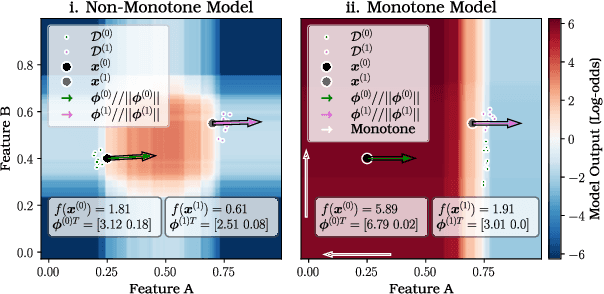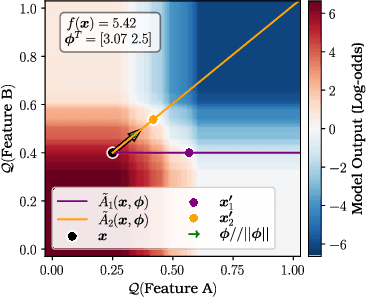Counterfactual Shapley Additive Explanations
Paper and Code
Nov 02, 2021



Feature attributions are a common paradigm for model explanations due to their simplicity in assigning a single numeric score for each input feature to a model. In the actionable recourse setting, wherein the goal of the explanations is to improve outcomes for model consumers, it is often unclear how feature attributions should be correctly used. With this work, we aim to strengthen and clarify the link between actionable recourse and feature attributions. Concretely, we propose a variant of SHAP, CoSHAP, that uses counterfactual generation techniques to produce a background dataset for use within the marginal (a.k.a. interventional) Shapley value framework. We motivate the need within the actionable recourse setting for careful consideration of background datasets when using Shapley values for feature attributions, alongside the requirement for monotonicity, with numerous synthetic examples. Moreover, we demonstrate the efficacy of CoSHAP by proposing and justifying a quantitative score for feature attributions, counterfactual-ability, showing that as measured by this metric, CoSHAP is superior to existing methods when evaluated on public datasets using monotone tree ensembles.
 Add to Chrome
Add to Chrome Add to Firefox
Add to Firefox Add to Edge
Add to Edge